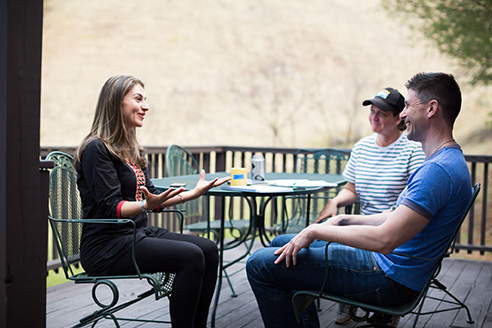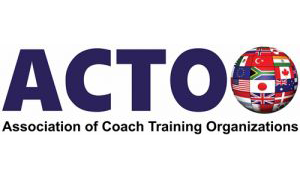We all have a story.
We were born in a particular place and time. We have been shaped by our family and our culture. We have had countless experiences: some triumphant, some traumatic, some rich, some painful. Loss. Success. Grief. Joy.
It took every one of these experiences to produce us; omit anything and we’d be different. Add anything else and we’d be different too. Given this….
…we are each the only person we could be.
Through it all, we have been developing. Every new challenge we have taken on — a bigger job, more responsibility, more complexity, higher stakes — has required us to become different in some way.
New challenges and opportunities can overwhelm us, or can be catalysts for our development. Our choice. The interplay between the outer (the world of achievement, results, projects) and the inner (the world of development, insight, learning and practice) is constantly evolving us.
Development trends towards an ever-larger circle of care and compassion, more space for complexity and ambiguity, the capacity to touch others in ways that matter, and an embracing intelligence that invites a better future. If we choose, our pressing challenges and our worthy aspirations serve to accelerate this development.

Presence-Based Coaching combines a world-class coaching approach with a commitment to leading edge lifelong learning, and a deep understanding of the bodymind as one. This integration is a richly embodied learning experience.
President, Institute for Zen Leadership
Developmental Cross-Training
Accelerated, presence-based development includes the whole person, the entire nervous system, and all aspects of a person’s life. Here’s a roadmap. Our development approach draws from the work of Ken Wilber, James Flaherty, and Robert Kegan.
Engaging Perception, Awareness and Understanding
We can only observe what we have learned to observe. Let’s develop new ways to see our worlds. Discern what we are being asked to do. Witness how our own conditioned habits tend to respond. This opens a wide range of new possibilities and responses.
Attention to….
- Including all channels of internal experience
- Witnessing ourselves in action
- Observing the world through new lenses and perspectives
- Making the invisible visible
- Stabilizing attention for focus and precision
… produces:
- Fluid access to multiple perspectives on any issue
- Focused, present moment awareness
- More complete and accurate understanding of our context
- Greater wisdom and range
Engaging the Body in Whole Person Learning
Prior learning is embodied throughout the entire nervous system, meaning that nearly all our thoughts and actions are pretty automatic. Engaging the body in learning is key. We can build ready access to equanimity and resilience no matter what’s going on around us.
Attention to….
- accessing information available through the body
- sensing the urges of habit in behavior, language, and thought
- embodying new capacities through body-centered practices
- maintaining steadiness and resilience in volatile, fast contexts
… produces:
- sensitized “early warning systems” for urges and old habits
- new embodied capacities and ways of being
- a strong signature presence
- a stable, resilient inner state regardless of chaos around us
Engaging Culture and Relationships
We lead through relationships. But sometimes old habits and unrecognized identity needs create unintended issues. Leadership presence builds authenticity and congruence. Skillful use of requests and offers helps build shared futures with others.
Attention to….
- extending leadership presence to others
- making and responding to requests explicitly and clearly
- engaging others in mutual learning
- giving and receiving feedback
… produces:
- trust, authenticity and resonance with others
- skillful and efficient negotiation of tasks and commitments
- a personal ecology consistent with what we care about
- cultures of collaboration, trust, and possibility
Engaging Environment and Systems
Discovering how our context works, and tweaking the systems we use accelerates development. Engaging creatively with complexity is crucial to the volatile times are living in.
Attention to….
- recognizing complex and emergent environments
- designing safe-to-fail experiments
- creating new and enabling conditions
- initiating systems and processes that evoke new behaviors
… produces:
- a climate of learning and discovery
- new insights and understandings
- forcing functions for organizational and team culture
- alignment of efforts towards what we care about
Self-Development and Getting Coached
Committed leaders can do a lot to develop their own capacities. Leaders can grow fast with a combination of contexts that require new ways of Seeing, Being, and Doing, and rigorous self-development and new practices.
And, we only see what we can see. The human mind is amazingly able to see filter out information that contradicts what we think! Because of this self-sealing quality, our development often lags far behind what a rapidly changing context asks of us.
An outside coach supports development by:
- Providing a sounding board outside office politics
- Offering powerful and precise feedback
- Revealing habits of thought, perception and action
- Evoking leadership presence and awareness
- Identifying high leverage actions and learning practices
Reframing leaders’ challenges in a developmental context.
Great coaches bring both robust methodology and embodied, congruent presence. Far more than a “bag of tricks,” a coach offers authentic partnership to leaders facing daunting challenges, unknowable futures, and new possibilities.

This articulation of coaching and leadership development is sophisticated and encompassing. The compelling and experiential course design constantly interspersed theory with application. While grounding skills in a strong body of theory, the emphasis was on practice. I came away with a greatly enhanced set of skills and a much stronger sense of my own leadership presence.
Former Assistant Commissioner for Management, Food and Drug Administration








